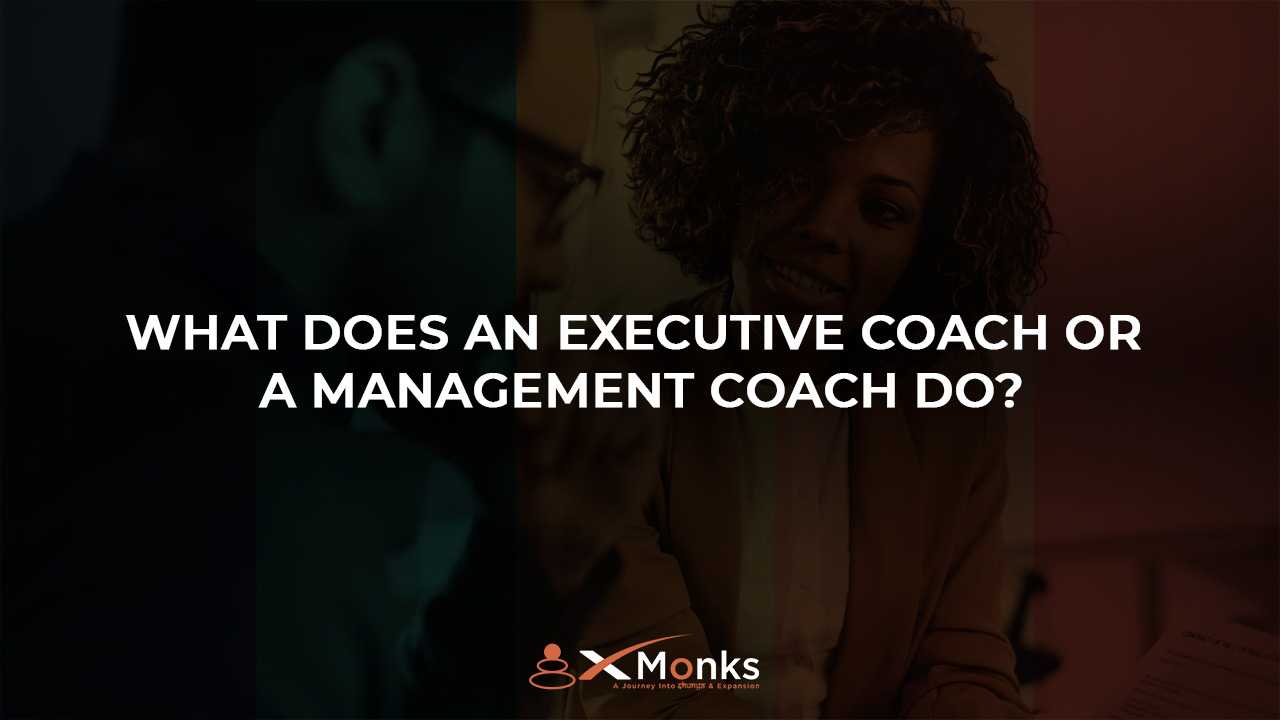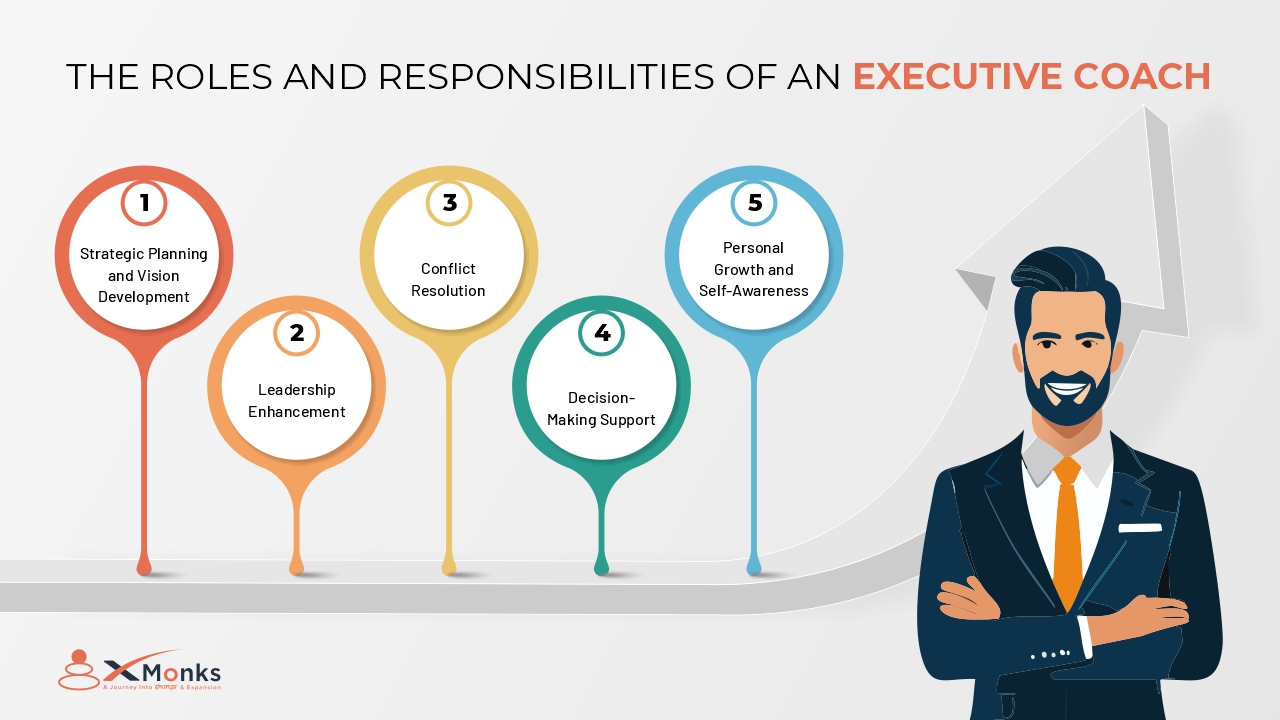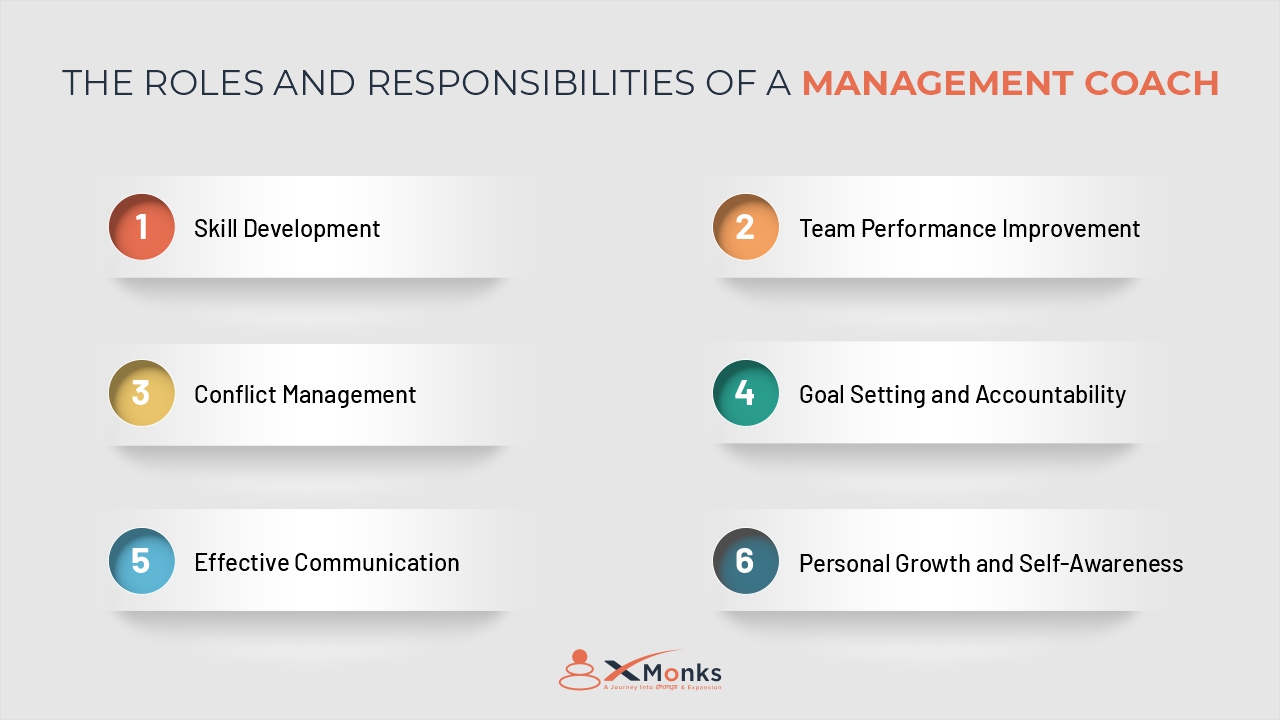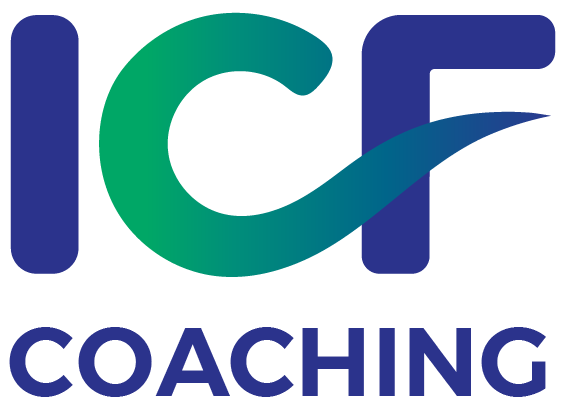What does an Executive Coach or a Management Coach do?

Introduction
The present day scenario of the business world dictates that effective leadership and management be an ever present reality. Enter the realms of executive and management coaching—two powerful tools designed to elevate leadership capabilities and enhance managerial skills. But what exactly do these terms mean, and why are they so vital for modern businesses? Let’s delve into the fascinating world of executive and management coaching and explore their profound impact.
What is an Executive Coach?
An executive coach is a professional who works with senior leaders to help them navigate complex business challenges, enhance their leadership skills, and achieve their personal and organisational goals.
The Roles and Responsibilities of an Executive Coach

In the current competitive business environment, the role of an executive coach has become increasingly crucial. An executive coach is a professional who works with senior leaders to enhance their leadership skills, improve decision-making, and drive personal and organisational growth. But what exactly does an executive coach do? Let’s delve into the key roles and responsibilities of an executive coach.
Strategic Planning and Vision Development
One of the primary responsibilities of an executive coach is to assist leaders in developing a clear and strategic vision for their organisation. They help executives identify long-term goals, set achievable objectives, and create actionable plans to achieve them.
Leadership Enhancement
An executive coach focusses on honing the leadership qualities of senior executives. This includes developing their emotional intelligence, improving communication skills, and enhancing their ability to inspire and motivate their teams. Through personalised coaching sessions, they help leaders become more effective and confident in their roles.
Conflict Resolution
Navigating conflicts within an organisation can be challenging. An executive coach provides leaders with the tools and strategies needed to manage and resolve conflicts efficiently. He or she also teaches executives how to approach disputes with empathy and fairness, fostering a harmonious work environment.
Decision-Making Support
Making high-stakes decisions is a critical aspect of an executive’s role. The executive coach offers unbiased perspectives and guides leaders through complex decision-making processes. He also encourages critical thinking, helps weigh the pros and cons, and ensure decisions align with the organisation’s strategic goals.
Personal Growth and Self-Awareness
The work of the executive coach is not just limited to enhancing professional development; it also focuses on personal growth. Coaches help executives gain deeper self-awareness, recognise their strengths and weaknesses, and identify areas for improvement. This holistic approach leads to more well-rounded and effective leaders.
Key Skills of an Executive Coach
Strong Interpersonal Skills
An executive coach must build trust and rapport with his clients. This requires excellent interpersonal skills, including empathy, active listening, and the ability to connect on a personal level.
Deep Understanding of Business Dynamics
To effectively coach senior leaders, an executive coach needs a thorough understanding of business operations, industry trends, and organisational behaviour. This knowledge allows them to provide relevant and impactful advice.
Emotional Intelligence
High emotional intelligence is crucial for an executive coach. They must be able to read emotions, manage their own reactions, and help executives navigate their emotional landscapes to improve their leadership effectiveness.
Exceptional Communication
Clear and effective communication is essential. An executive coach must convey his insights and feedback in a way that is understandable and actionable, helping leaders to apply these lessons in their professional lives.
What is a Management Coach?
A management coach focuses on helping managers improve their team leadership and management capabilities. They work closely with managers to develop skills that promote team efficiency and productivity.
The Roles and Responsibilities of a Management Coach

A management coach works closely with managers to enhance their skills, improve team performance, and foster a productive work environment. But what exactly does she do? Let’s explore the key roles and responsibilities of a management coach.
Skill Development
One of the primary responsibilities of a management coach is to help managers develop and refine their skills. This includes leadership skills, communication abilities, and conflict resolution techniques. By focusing on these areas, coaches enable managers to lead their teams more effectively and confidently.
Team Performance Improvement
A management coach plays a crucial role in boosting team performance. She works with managers to identify strengths and weaknesses within their teams, set clear performance goals, and create strategies to achieve these objectives. This often involves enhancing collaboration, improving workflow processes, and fostering a positive team culture.
Conflict Management
Handling conflicts within a team can be challenging for managers. A management coach provides tools and strategies to manage and resolve conflicts constructively. She teaches managers how to address issues with empathy and fairness, ensuring a harmonious and productive work environment.
Effective Communication
Clear and effective communication is vital for any manager. A management coach helps managers improve their communication skills, ensuring they can convey their messages clearly and listen actively to their team members. This leads to better understanding, increased trust, and stronger team dynamics.
Goal Setting and Accountability
The management coach also assists managers in setting realistic and achievable goals for themselves and their teams. She helps create actionable plans and hold managers accountable for their progress. This structured approach ensures that managers stay focused and motivated to achieve their objectives.
Personal Growth and Self-Awareness
Beyond professional skills, a management coach also focuses on personal growth. She helps managers gain self-awareness, recognise their strengths and areas for improvement, and develop a growth mindset. This holistic development leads to more well-rounded and effective managers.
Key Skills of a Management Coach
Apart from needing to possess strong interpersonal skills, a management coach must also have high emotional intelligence and be a really effective communicator. Now, let us look at a few skills unique to a management coach-
Expertise in Management Practices
A deep understanding of management principles and practices is crucial. Coaches need to be well-versed in areas such as team dynamics, organisational behaviour, and strategic planning. This expertise allows them to provide relevant and practical advice that managers can apply in their daily operations.
Problem-Solving Skills
A management coach is often called upon to help managers solve complex problems. Strong analytical and problem-solving skills enable coaches to identify root causes of issues, brainstorm potential solutions, and guide managers in implementing effective strategies to overcome challenges.
Adaptability
The ability to adapt coaching styles and methods to meet the unique needs of each manager is critical. The management coach must be flexible and open to adjusting her approach based on the individual’s personality, learning style, and specific challenges.
Accountability and Goal-Setting
Management coaches help managers set realistic and achievable goals, creating a structured plan for reaching these objectives. They hold managers accountable for their progress, ensuring that they stay focused and motivated to achieve their targets.
Differences Between an Executive Coach and a Management Coach
Today, the roles of both the executive coach and the management coach have become indispensable. While they may sound the same, there are differences to their portfolios. While both aim to enhance leadership and managerial skills, their focus, methodologies, and target audiences differ. Understanding these differences can help organisations choose the right type of coaching for their specific needs.
Focus and Scope
Executive Coach: An executive coach primarily works with senior leaders, such as CEOs, CFOs, and other top executives. His focus is on strategic leadership and organisational growth. He helps executives develop a long-term vision, improve decision-making, and enhance their leadership presence. The executive coach often addresses issues related to corporate strategy, board relations, and high-level decision-making.
Management Coach: The management coach, on the other hand, works with mid-level managers and team leaders. Her focus is on operational efficiency and team dynamics. She helps managers develop skills in team management, conflict resolution, and effective communication. The management coach aims to improve day-to-day operations and enhance the overall productivity of the teams she leads.
Target Audience
Executive Coach: The primary audience for an executive coach consists of top-tier executives and senior leaders. These individuals typically have extensive experience and hold significant influence within their organisations. The executive coach works with them to refine their leadership styles, tackle high-stakes decisions, and align their personal goals with organisational objectives.
Management Coach: The management coach targets mid-level managers, team leaders, and sometimes new managers. These individuals are responsible for overseeing teams and ensuring that daily operations run smoothly. Management coaches focus on developing the skills necessary for effective team leadership, such as delegation, performance management, and interpersonal communication.
Methodologies and Techniques
Executive Coach: Executive coaching often involves one-on-one sessions that are highly personalised. Coaches use techniques such as 360-degree feedback, where input is gathered from peers, subordinates, and superiors to provide a comprehensive view of the executive’s performance. They also employ strategic questioning, scenario planning, and reflective practices to help executives gain insights into their leadership styles and decision-making processes.
Management Coach: Management coaching typically involves a mix of one-on-one and group sessions. Coaches use practical tools and frameworks to help managers develop specific skills. Techniques include role-playing, simulations, and hands-on exercises that address real-world challenges. A management coach also provides actionable feedback and support managers in implementing new strategies and practices within their teams.
Expected Outcomes
Executive Coach: The outcomes of executive coaching are often seen at the organisational level. These include improved strategic decision-making, enhanced leadership presence, and stronger alignment between personal and corporate goals. Executive coaching aims to create leaders who can inspire and drive their organisations towards long-term success.
Management Coach: The outcomes of management coaching are more immediate and operational. These include improved team performance, better conflict resolution, and more effective communication within teams. Management coaching aims to create managers who can lead their teams efficiently, fostering a productive and positive work environment.
Challenges and Solutions
Executive Coach: One of the main challenges an executive coach faces is resistance to change. Senior leaders often have established ways of thinking and may be reluctant to adopt new approaches. To overcome this, the executive coach emphasises the benefits of change and provides evidence-based strategies to demonstrate the potential for improvement.
Management Coach: A management coach often encounters diverse team dynamics and varying levels of manager experience. To address these challenges, she uses customised coaching plans that cater to the specific needs of each manager and team. She also provides continuous support and follow-up to ensure the successful implementation of new strategies.
Conclusion
While both executive and management coaches play vital roles in enhancing leadership and management capabilities, their focus, target audiences, methodologies, and outcomes differ significantly. The executive coaches work with senior leaders to develop strategic vision and leadership presence, while the management coach helps mid-level managers improve team performance and operational efficiency. Understanding these differences is crucial for organisations seeking to optimise their leadership and management development efforts.
How To Find The Right Executive or Management Coach
In today’s competitive business landscape, the right executive coach or a proper management coach can make a significant difference in your professional development and organisational success. However, finding the right coach requires careful consideration and a strategic approach. Here’s a comprehensive guide to help you navigate this process.
Understand Your Needs
1. Define Your Goals: Before you start looking for a coach, it’s essential to clearly define your goals. Are you seeking to enhance your strategic decision-making, improve leadership presence, or boost team performance? Knowing your objectives will help you identify the specific type of coaching that will benefit you most.
2. Identify Your Target Audience: Understand whether you need an executive coach for senior leaders or a management coach for mid-level managers. Executive coaches focus on high-level strategy and leadership, while the management coach concentrates on operational efficiency and team dynamics.
Research and Credentials
3. Check Certifications: Look for coaches with certifications from reputable coaching organisations such as the International Coach Federation (ICF) or similar bodies. These certifications indicate that the coach has undergone rigorous training and adheres to professional standards.
4. Evaluate Experience: Consider the coach’s experience in your industry and their track record with clients at similar levels. An executive coach with experience working with C-suite executives will be more attuned to the challenges and opportunities at that level. Similarly, a management coach with hands-on experience in mid-level management can provide practical and relevant guidance.
Assessing Compatibility
5. Initial Consultation: Schedule an initial consultation with potential coaches to assess compatibility. This meeting is an opportunity to gauge their communication style, understand their coaching approach, and determine whether their personality meshes well with yours. Trust and rapport are crucial for a successful coaching relationship.
6. Personalised Approach: Ensure that the coach offers a personalised approach tailored to your specific needs. One-size-fits-all solutions are less effective than coaching that considers your unique strengths, challenges, and organisational context.
Techniques and Methodologies
7. Ask About Coaching Techniques: Inquire about the coach’s methodologies and techniques. An executive coach might use tools like 360-degree feedback and reflective practices, while the management coach may employ role-playing and hands-on exercises. Understanding their methods will help you determine if they align with your learning style.
8. Look for Continuous Development: The best coaches are committed to their own continuous learning and development. Ask about how they stay updated with the latest coaching techniques and industry trends. A coach who is constantly evolving is better equipped to provide fresh insights and strategies.
Gather Feedback and Testimonials
9. Seek References: Request testimonials or references from past clients. Speaking with others who have worked with the coach can provide valuable insights into their effectiveness and the outcomes they have achieved. Look for coaches who have a proven track record of helping clients reach their goals.
Evaluate the Commitment and Fit
10. Assess Commitment: A good coach is invested in your success and demonstrates a genuine commitment to helping you achieve your goals. During your initial meetings, assess their level of engagement and interest in your development.
11. Consider the Long-Term Relationship: Coaching is often a long-term commitment. Choose someone you feel comfortable with and confident in for an ongoing relationship. The right coach will grow with you, continually adapting their guidance to meet your evolving needs.
Whether you seek to enhance high-level strategic thinking or improve team management, the right coach will provide the guidance and support necessary to achieve your goals. Invest time and effort in this process, and you’ll find a coach who not only meets your needs but also helps you unlock your full potential.
The coaching process, whether for executives or managers, is a structured approach aimed at enhancing leadership skills, improving performance, and fostering personal and professional growth. Despite their shared goals, both the executive coach and the management coach employ distinct techniques tailored to their specific audiences. Here’s an in-depth look at the coaching process and techniques used by both types of coaches.
The Coaching Process
1. Initial Assessment: Both executive and management coaching begin with a thorough assessment. This involves understanding the coachee’s current role, challenges, strengths, and areas for improvement. Tools such as 360-degree feedback, personality assessments, and performance reviews are commonly used.
2. Goal Setting: Clear, measurable goals are established based on the initial assessment. For an executive coach, these goals often focus on strategic leadership, decision-making, and organisational impact. A management coach typically sets goals around team dynamics, conflict resolution, and day-to-day operational efficiency.
3. Action Planning: An actionable plan is developed to achieve the set goals. This plan includes specific steps, timelines, and milestones. Both types of coaches ensure the plan is realistic and aligned with the coachee’s responsibilities and organisational objectives.
4. Implementation and Support: The coach provides ongoing support as the coachee implements the action plan. This may include regular check-ins, feedback sessions, and adjustments to the plan as needed. The coach acts as a sounding board, offering insights and encouragement.
5. Evaluation and Reflection: Progress is regularly evaluated against the set goals. The coach and coachee reflect on what has been achieved, what challenges remain, and how strategies can be adjusted for continued improvement. This phase ensures that the coaching process is dynamic and responsive to the coachee’s development.
Coaching Techniques
The Coaching Techniques of an Executive Coach:
1. 360-Degree Feedback: An executive coach frequently uses 360-degree feedback to gather comprehensive insights from peers, subordinates, and superiors. This feedback provides a holistic view of the executive’s performance and areas for development.
2. Reflective Practices: Techniques such as journaling and reflective questioning help executives gain deeper insights into their leadership styles and decision-making processes. This self-awareness is crucial for personal growth and strategic thinking.
3. Scenario Planning: Executives are often guided through scenario planning exercises. These exercises help them anticipate future challenges, evaluate potential outcomes, and develop strategies to navigate complex situations.
4. Leadership Presence Development: An executive coach works on enhancing the leader’s presence, focusing on communication, body language, and public speaking skills to improve their ability to inspire and influence others.
The Coaching Techniques of a Management Coach:
1. Role-Playing: A management coach uses role-playing to simulate real-world scenarios. This hands-on approach helps managers practice and refine their skills in a safe environment, preparing them for actual situations they might encounter.
2. Practical Tools and Frameworks: A management coach provides practical tools such as time management techniques, delegation frameworks, and performance management systems. These tools are directly applicable to the manager’s daily responsibilities.
3. Team Dynamics Analysis: Coaches analyse team dynamics to identify strengths and areas for improvement. Techniques such as team-building exercises and communication workshops are used to enhance collaboration and productivity.
4. Conflict Resolution Strategies: Management coaches teach conflict resolution techniques, helping managers address and resolve disputes within their teams effectively. This includes active listening, mediation, and negotiation skills.
Conclusion
Executive and management coaching are indispensable tools for developing strong leaders and efficient managers. This makes an executive coach and a management coach indispensable within the They offer tailored guidance, strategic insights, and practical skills that drive both personal and organisational success. As businesses continue to evolve, the role of coaches will become even more crucial in navigating the complexities of modern leadership.

